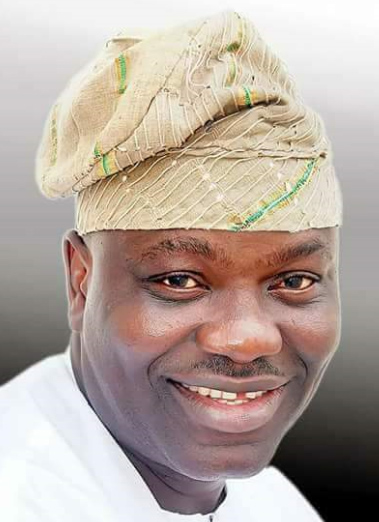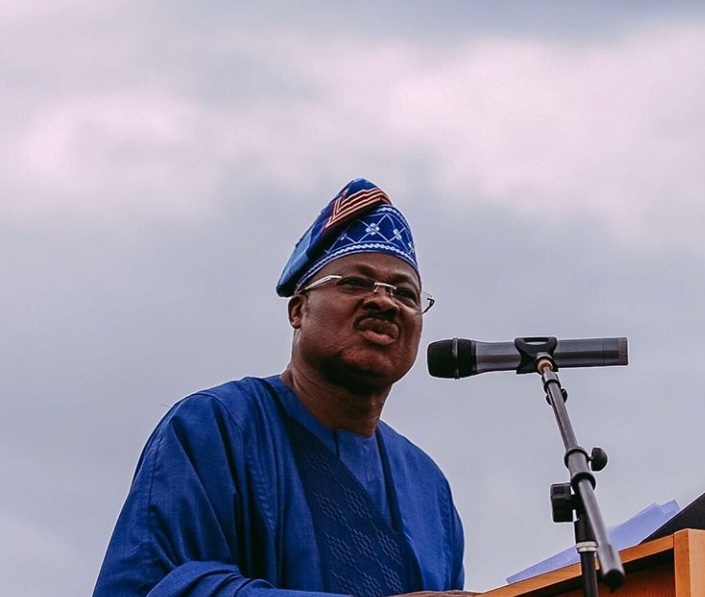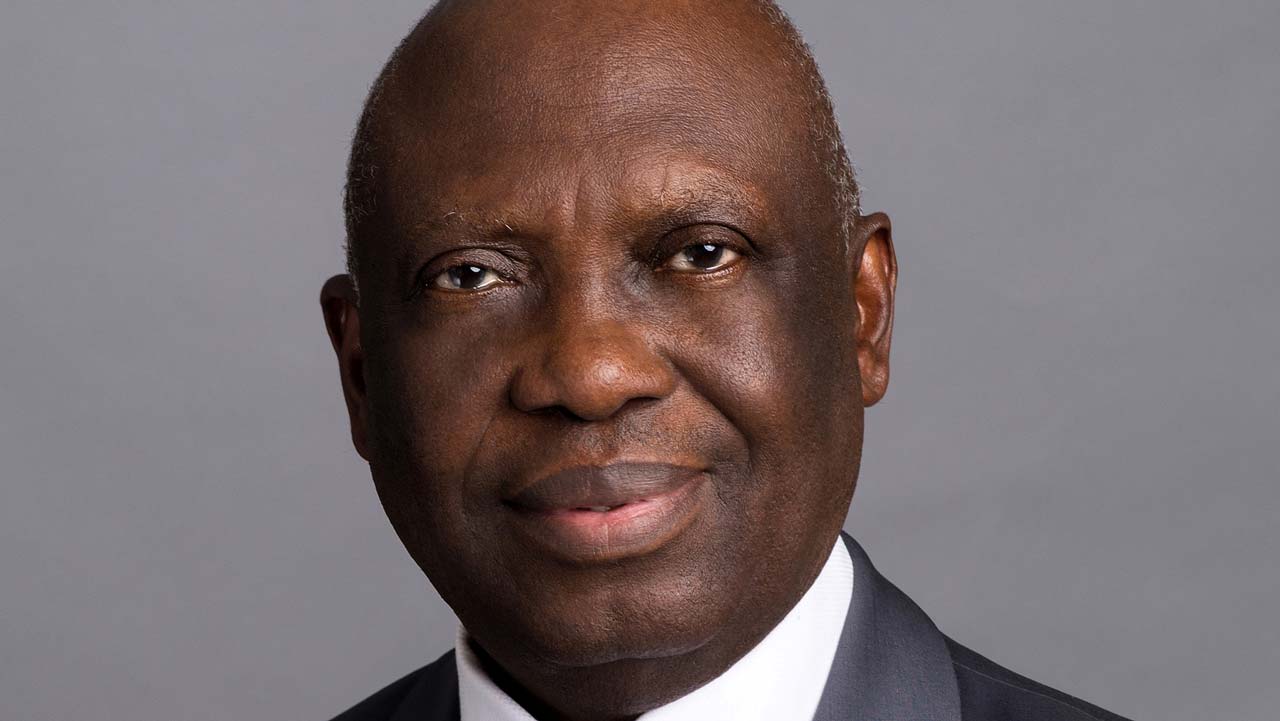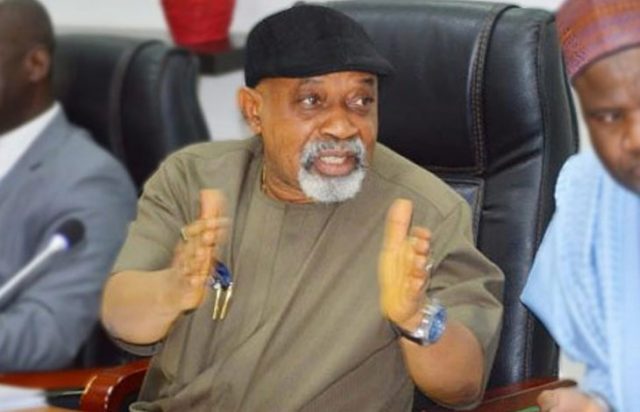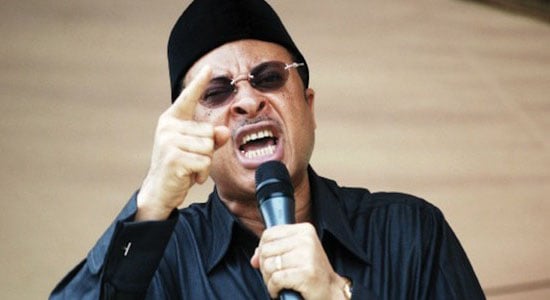Senator Abiola Ajimobi went the way of all flesh on June 25, 2020. I had the privilege of serving as Chief of Staff to Governor Ajimobi in the first half of his first term in office. I parted ways with him politically some years ago.
Nevertheless, I feel obliged to record my knowledge of him for posterity.
I met Senator Ajimobi for the first time in 2006. I was involved in a project to develop a blueprint for the development of Nigeria, and I was detailed to invite Senator Ajimobi who was then the Chairman of Senate Committee on Environment to speak on the subject. We related briefly again shortly after at the formation of the Advanced Congress of Democrats (ACD) before he finally opted to contest the 2007 gubernatorial election on the platform of the All Nigeria Peoples Party (ANPP). In 2009, we worked more closely as he struggled to reclaim the mandate he believed he won in the 2007 election. We met virtually every evening in Abuja and threw our contacts into the effort to reclaim the mandate. Expectedly, some of the meetings segued into a discussion about the path to the development of Oyo State, and there was absolutely no doubt that he was prepared to give the state a different paradigm of leadership. The quest for the mandate also brought out his innate qualities as an organiser and a believer in probity.
I recall a particular incident. One of the associates in the effort to reclaim the mandate had introduced Senator Ajimobi to a prominent Nigerian. At the meeting held in the Abuja residence of the businessman, he left no one in doubt of his capacity to deliver on the project as he made telephone calls to some individuals who were to play a critical role in the determination of the matter. But this was to be at a cost. Ajimobi was to sign an Irrevocable Standing Order for the deduction of N1.5 Billion from the monthly federal allocation to the state for one year as fee for the service. Even with the almost absolute assurance that he would become the Governor, he declined. As we drove out of the Asokoro residence of the highly connected businessman, one of those in the backseat of the car exasperatingly wondered aloud “is this man (Ajimobi) ok?. It was later that I realised that Ajimobi heard the offensive comment but chose to ignore it. “Is this how they govern Nigeria?,” he repeatedly asked as he told the contact who took us to the businessman that he would never sign off the money of the state to become the Governor. When we returned home to review the meeting, he insisted that although he craved the office of Governor, he would not sign off the resources of the state to satisfy his ambition. He recalled how he was one of the very few senators who rejected the N50 Million offer to amend the constitution to remove the tenure limit on the office of the president in 2006 and how much he knew his father would be proud of him in his grave.
Advertisement
It was judgement day in 2009. We crowded into the living room of one of his supporters to watch the television broadcast of the judgement of the Court of Appeal, which was the final court in gubernatorial disputes at the time. There was a power outage, and we hurriedly headed to the residence of another of Ajimobi’s supporters, on the other side of Abuja. Within five minutes of the commencement of the judgement, it was evident that we had lost the case. It was a deeply humbling and disconcerting experience to see adults crying and howling as the reality dawned on all of us. Down the drain went the ambitions and aspirations of many of us who were already occupying positions in the imaginary government. The only person who remained calm was Ajimobi as he joked about the contorted mouths of crying adults. He cheered us up with jokes and assurances that we lost because it was not yet God’s time for him to be Governor.
At the next meeting of the group, he came with his diary and his notes on why he thought we lost the case. He shared his ideas about what we needed to begin to do in earnest if we were going to win in the next election. I recall that the most important of the factors were the choice of political party and funds for political engagement. He argued that if he had contested on the platform of either of the biggest parties of the time, the PDP and AC, he would have either won at the polls or successfully reclaimed his mandate in the court. He went to work immediately and got himself on the ticket of the Action Congress (AC) for the 2011 gubernatorial election. He never considered the Peoples Democratic Party(PDP) at any point in his political career because he said his father, as a progressive, will never forgive him if he joined the PDP, which he regarded as a conservative party.
ELECTION AND THE FORMATION OF THE AJUMOSE GOVERNMENT
Advertisement
Ajimobi’s prognosis of the 2011 elections was correct with prophetic exactitude. He was a very strategic person. He put together the building blocks of his plans years ahead of the destination. He won the election and went on to form his government. I worked with him closely in the weeks leading to the election. He was a man committed to endless meetings. He resumed at every meeting with his diary full of notes from interactions with politicians and power brokers in the state and as I later found out, his nightly reflections. He was never shy of revisiting issues and changing his position in the face of superior logic. He was good at defining problems and proffering solutions. “You can solve any problem if you define it accurately. If need be, you only need to re-context the problem”, he would say.
He interviewed many people for the principal offices in his government, notably those of Secretary to the Government, Chief of Staff, Head of Service, Commissioner for Finance, Attorney General and Commissioner for Justice, Commissioner for Works and Commissioner for Education, among others. I sat in on some of the meetings as I played the role of coordinator of the nascent Governor’s Office in his Oluyole Estate residence. For each of the offices, he had defined the roles he would assign to them and the personal qualities he wanted in the appointees. For the appointment of Commissioners, Special Advisers and Senior Special Assistants, he requested the party at the local government level to make nominations into a pool from which he filled the offices. He ended up with over 1000 Curricula Vitae to scrutinise to fill those offices. I recall that on the deadline he set for himself on the appointment of commissioners, we worked in the office till 5.30 a.m. He made telephone calls to some nominees in those early hours to make clarifications on their CVs. Many of the successful nominees made the list because the Governor was impressed that they could make coherent clarifications in those hours of the day, where many others didn’t pick their calls or had switched off their phones. In one particular instance, he changed his choice for an office because someone unknown to him had presented an incredibly intimidating CV. At about 3 a.m., he put a call to the nominee and the nominee unexpectedly picked his call. The Governor introduced himself and sought clarification on some of the claims in the CV. Then he asked him why he was awake at that hour of the day, and the nominee responded that he had a deadline to meet in another two days but preferred to complete his task ahead of time. He offered him the post immediately. When we reminded him that he had rejected some other nominees because he claimed to have made up his mind on someone for that office, which was truly critical to his priorities, he retorted “Kama paro fun’rawa, CV eyan wa o da to eleyi, A ma wa nkan mi fun. (Don’t let us deceive ourselves; the CV of my preferred candidate is not as good as that of this person. We will give our candidate something else.”)
He ended up with an outstanding cabinet and one of the most resourceful teams I have ever worked with. Cabinet meetings were always very engaging, and members had to work hard on their papers before coming into the chambers for presentation. He introduced many members to PowerPoint and the rudiments of high-level presentations. He abhorred mediocrity and ruffled the feathers of some members with his blunt and brutal assessments. When the exigencies of politics made it ill-advised to remove some commissioners, he introduced the committee system to carry out some assignment which he felt one or two members of the cabinet could not successfully carry out.
He came into government with a clear vision to return Oyo State to her previous position as a major economic player in the Nigerian federation. To accomplish this, his priorities were security, infrastructure development, functional free education and revitalisation of agriculture with emphasis on large-scale commercial farming driven by the private sector. He set up a policy advisory council with members drawn from the academia and the private sector. He prioritised the Ibadan Circular Road that was initiated by Governor Rasidi Ladoja and sought to execute it in a modular form beginning from the Lagos-Ibadan
Advertisement
Express Road /Ibadan-Ife Road axis. It was to be executed by a private investor, and the proceeds from the toll collection would be deployed to develop the second half of the project. He planned to open up the state through the dualisation of entry- points to the state capital and major towns in the state. He placed the establishment of a technical university on the same pedestal and envisioned the resolution of the crisis between Osun and Oyo States on the ownership of Ladoke Akintola University. He was part of the initiative to make Asiwaju Bola Tinubu the Chancellor of the University believing that being the political leader of the incumbent governors of both states, he could authoritatively help resolve the crisis on the matter.
HIS WORK ETHIC
He was a hard taskmaster who expected everyone to work at his speed and with the same attention to detail. He worked late into the night. He came to the office about 9 a.m. and hardly left before midnight to consult with critical stakeholders in the state on issues under consideration or resume his daily nightly meetings at the Government House. What many regarded as one of his shortcomings early in the administration was his preference for endless meetings. Ajimobi would schedule meetings with different groups on the same matter even when commissioners felt the issues were not as complex as to warrant so many meetings. He always argued that the essence of such meetings was not only to arrive at a consensus but to let the people know that government decisions were taken after due consultation. He had an incredible energy for meetings and an equally incredible intellect to synthesize diverse and divergent outcomes of such meetings.
He was an avid reader. His experience at Shell Petroleum exposed him to many specialties, and he complemented the knowledge by reading wide. He would take his time to read on any subject under the consideration of government and was never shy of asking for the guidance of those he believed were knowledgeable in the field. Even before commissioners at cabinet meetings, he would place calls to governors in other states who had tackled the problems before and ask them how they handled such situations. In many instances, he dispatched his commissioners and top officials to other states to understudy how certain programmes were executed. I recall when we attended the launch of the OponImo project in Osun State. He expressed his displeasure and agony sitting through such a laudable programme while he would have preferred to host the other states as the initiator of such a project. “Anyway, if you cannot initiate such a programme, you should at the minimum be able to replicate it. At least, let us know we are paying you for something”, he charged openly at his commissioners in the Coaster bus taking members of the cabinet back to Ibadan from the Osun State capital. He sent his commissioner and top officials to Lagos State to understudy town planning and housing estate development. He led a delegation to Rivers and Imo States to understudy certain programmes of the states. He asked his commissioners to replicate and improve upon the initiative on the management of the property ownership in Ogun State among many others. Beyond Governors, he was always in constant touch with critical stakeholders in decision making. He never shied away from contacting people with requisite academic and professional experience to guide his thoughts on any matter he was contemplating. One of such people that he was always in contact with was the late Alhaji Arisekola Alao, the highly influential Aare Musulumi of Yorubaland. We visited his Oluwo Nla residence regularly at night where the Governor had scheduled meetings with prominent traditional rulers and indigenes of the state on contentious issues before the government.
Advertisement
HIS CAPACITY TO SAY “NO”
One major attribute of Ajimobi was his ability to look many prominent people in the eye and say “No” to their requests. His argument was always that he would be shortchanging the people of the state if he acceded to many of such requests, which he considered self-serving. I recall when some elders visited him in the Governor’s Office with what they called an “urgent and important message”. The message was that Ibadan people were not happy with his government over certain issues, which they outlined. “Who are the Ibadan people that are angry?” he asked them in Yoruba language and before they could answer, he continued,” I am an Ibadan man and I am not angry with the government”. He dismissed their requests, which he said were disguised in the garb of Ibadan interest whereas they were purely personal. On one other occasion, in the aftermath of the sacking of some civil servants who were indicted for falsifying their academic and birth certificates, some elders came to complain that majority of those sacked were from Ibadan. He looked at them for a moment and replied: “Baba, you know that majority of the civil servants are from Ibadan, and by law of proportion, they will form a larger percentage of those we are sacking especially if the same proportion is reflected in the number of those who committed the offence.
Advertisement
Besides, I’m sorry to ask, Baba, did they get the approval of Ibadan people before they falsified their certificates?Once,when some elders from the Oke Ogun area of the state met the governor about the underdevelopment of the area, he told them that there were some areas in Ibadan that were so underdeveloped that they would need 50 years of government attention to attain the same level of development in parts of Oke Ogun. It was not unusual to witness the Governor half prostrating for elders but yet affirming his rejection of their request at the same time. “E ma binu sir. Ko seese sir” (Don’t be angry sir, I cannot accede to your request, sir), he would say as he would repeatedly bow to the elders.
HIS GIFT OF THE GAB
Advertisement
Ajimobi had a facility for words. This was one of his strongest strengths. As Chief of Staff, it was my responsibility to prepare his Talking Points ahead of any major public appearance, where we reckoned that a formal speech was not necessary or when he so directed. I did this in concert with the relevant ministry or government agency and the duo of the Special Assistant (Media and Publicity), Dr Festus Adedayo and Senior Special Assistant (Public Affairs), Mr Toye Arulogun. The Governor would go through such notes shortly before stepping out of his office for the event if within the Government Secretariat or in his car while driving to the event. Every single time, he would leave us wondering whether he had previous knowledge of the event and had done extensive research on the subject. He would recall relevant life experiences, throw in related jokes and pass innuendos about some of the important dignitaries in the audience and then delve into the subject with the depth and dexterity of an expert in that field.
Ajimobi was a faithful student of Thomas Huxley, the 19th century English biologist famous for his maxim: “Learn something about everything and everything about something”
Advertisement
HIS UBIQUITOUS AGBADA
Ajimobi was a sartorialist. He was always impeccably dressed and eager to regale in the quality of his appearance. He tutored me on the importance of always having a cap on caftan each time I adorn one. He was always blunt to chastise a government official who appeared shabilly and once looked into the eye of a top official and asked him if he had just finished a bowl of fish. “ It is most appropriate to make utterances after a bowl of fish because you will leave the whole environment smelling”, he mildly complained when the official answered in affirmation. I remember many occasions when the Governor was reminded in the wee hours of the day to change from his flowing Agbada, and he would respond that he needed the Agbada to look good for his meetings, even at 3 a.m! He was always conscious of his stature and the need to look good at all times. “I have a small stature, and I am always the smallest in every gathering. What has helped me is my intellect and hard work”, he would say. He cared about his image and treated the media with particular respect. Although his automatic response to any request for money was a frowning “No”, he was always ready to accommodate requests of the media department and was regularly available to play role of a good host to visiting journalists to the state.
HIS JOKES
Ajimobi was a natural raconteur. He enjoyed jokes and always had bubbling belly laughs at good jokes. He equally liked to unwind after a hectic day. “Let us share a bottle of wine”, he would begin a process that could lead to hours of debates, controversies and brainstorming. He would have a good laugh when a guest or a cabinet member didn’t know what glass to use for which drink. “This is because you worked with …B and Sons(he would insert the name of an indigenous company in Ibadan to provoke protests from Ibadan businessmen in attendance). He would throw jabs at guests who became loose-tongued after a few glasses of wine. He would teach a guest which cutlery to use for which food, revealing how he had to learn all of this while he worked with Shell Petroleum.” I didn’t work with B and Sons..”, provoking another round of protest from indigenous Ibadan businessmen in attendance and the Governor would burst into hilarious laughter. He was good at putting people at ease. He would throw banter at the dress sense of officials, helping them to adorn the dress appropriately, regaling his audience how Mr Akanbi, his boss at National Oil, taught him the same lesson.
His sparring partner in many of his jokes was his wife whom he adoringly called “Florie”. Once in the early days of the administration, he returned home and surged forward to give his wife, who had come to the doorstep to receive him, a kiss. She walked away as if embarrassed by the gesture in the presence of aides in tow of the governor and the Governor retorted,” you mean you want to reject an executive kiss?; How many women have the privilege of being kissed by a governor”. The wife said he was right and officials who were in the Governor’s tow looked away, not knowing whether the kiss took place or not…
He had two favourite jokes. The first was about his wife setting up a motherless babies home. He always recalled telling his wife that while he appreciated the philanthropy behind the gesture, he had advised her to let him procreate the babies while she took care of them. “At least we will know their father if we don’t know their mothers!”, he would say to a bemused look from the wife.
His other favourite joke was about an armed robbery operation. The robbers had invaded a house, and the leader of the gang took instant notice of an expensive necklace on the lady of the house. At the end of the operation, the gang leader took an inventory of their loot but could not find the expensive necklace. He confronted the lady and she pointed at the member of the gang who yanked the necklace off her neck. They searched the culprit and found the necklace on him. In anger, the gang leader charged at him: “Awa wa sise, iwo wa jale!” (What impudence! We came here to work, and you are here stealing!).
Like every mortal, Governor Ajimobi had his flaws and weaknesses. May God forgive his sins, admit him to Al-jannah Firdaus and grant the family the fortitude to bear the irreparable loss.
Professor Akande, chairman of the board of commissioners of the Nigerian Communications Commission (NCC), was chief of staff to Governor Ajimobi between June 2011 and September 2013.
Views expressed by contributors are strictly personal and not of TheCable.
